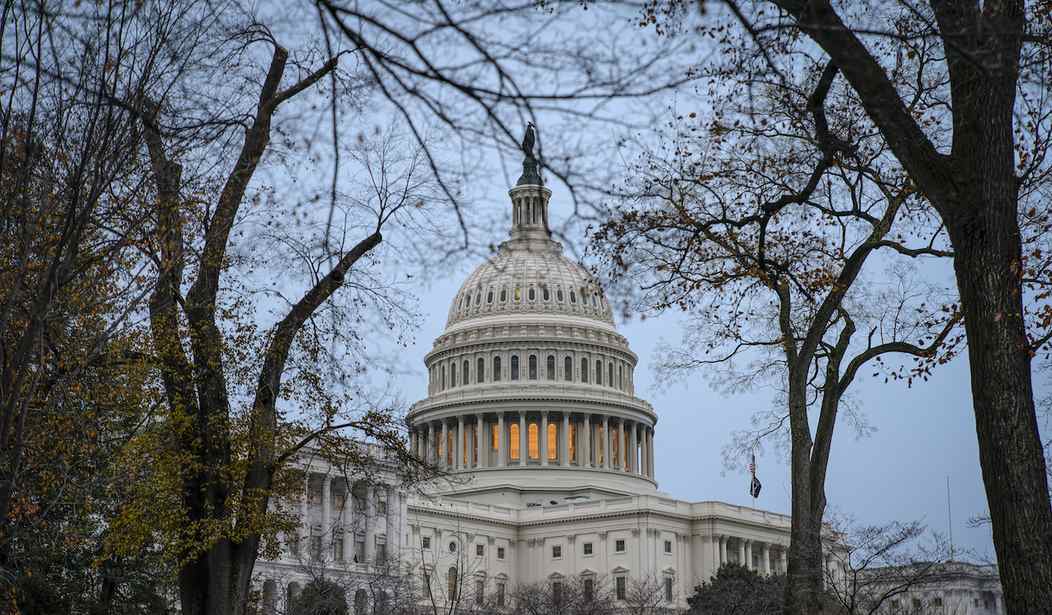The first Durbin Amendment – a set of regulations from Dodd Frank that largely destroyed part of the debit card market – was a fiasco in every way.
A second Durbin Amendment, currently being considered by Democrats in Congress, would be even worse for America’s consumers, community banks, and credit unions.
The original Durbin Amendment – named after its author, liberal Sen. Dick Durbin (D-IL) – was passed in 2010 as part of thelargely disastrousDodd-Frank Act under President Obama. It slapped harsh regulations on debit cards. While the goal was to lower consumers’ cost and exempt community banks and credit unions, the scheme backfired.
Using socialist-style price controls, the Durbin Amendment capped debit interchange fees charged to retailers. In theory, the retailers’ savings would be passed on to the consumer. In reality, however, most retailers simply kept the change. Home Depot even bragged to investors how much money they were pocketing thanks to the Durbin Amendment.
More than 89% of retailers did not lower prices to reflect their lower debit card transaction costs following the adoption of the Durbin Amendment, and many raised prices, according to research published by the Federal Reserve Bank of Richmond.
But the bad news for American consumers didn’t stop there.
The price caps were so unreasonable that banks and credit unions lost money providing debit cards. As a result, consumers faced higher fees and higher account minimum. The debit rewards that used to go straight into consumers’ pockets disappeared.
Recommended
But don’t take my word for it. The Government Accountability Office (GAO), which works for Congress, recently looked at policies that hinder financial inclusion and raise costs for consumers. They found, “the Durbin Amendment and Regulation II are associated with increases in the costs of checking accounts, according to studies we reviewed.”
Interestingly, the Durbin Amendment’s price caps are so anti-free market, they have since been replicated by the communist Chinese government.
Although the Durbin Amendment is viewed as the financial industry’s version of the Hindenburg, several U.S. senators believesaddling credit cards with the same regulations that all but ruined debit cards would be a swell idea. Sen. Durbin plans to hold aSenate Judiciary Committeehearing to discuss the proposal this week and, if the flawed scheme is accepted in Congress, President Biden would likely immediately sign it into law.
Why does anyone believe the many failures of the Durbin Amendment wouldn’t be replicated in the credit market? Unfortunately, the negative consequences would be far worse.
Just as before, prices wouldn’t fall for consumers – massive companies would again pocket billions of your dollars. But this time, it would eliminate almost everything people like about their credit cards.
Credit card companies would no longer be able to recoup the cost of their expensive network infrastructure and fraud protections to retailers and consumers. As a result, they would have to charge higher annual fees on credit cards, and largely eliminate credit rewards altogether. Consumers obviously like zero fraud liability from lost or stolen cards. Why would anyone push legislation that would jeopardize those consumer protections?
A Durbin 2.0 would also take away consumer choice and force credit card transactions over the cheapest routing network available, rather than the most secure or efficient, or more importantly, the one consumers choose.
This would lead to weaker cybersecurity and more fraud. It would also cause upper-tier credit cards that provide benefits such as airline miles, hotel points, cashback bonuses and other credit card rewards to either eliminate such benefits or significantly devalue them to comply with the new rules.
Finally, let’s be clear who this would hurt the most: small banks and credit unions. They have been disappearing at a rate of 250 a year because of the original amendment. Although they had an “exemption” on paper from the Durbin Amendment, talk to any community bank and credit union and they’ll explain how Durbin devastated their bottom line and hurt their customers. When you raise the cost of credit you hurt community lenders. You hurt small businesses like restaurants and farms who rely on easy access to credit.
The Durbin Amendment was a flop the first time and the sequel will upend the credit market as we know it. It’s a policy that no clear-thinking American should want to see become the law of the land.
If Members of Congress want to help struggling Americans, they should focus on fighting the original Durbin Amendment, not creating a new, even worse version.
Drew Johnson is a government watchdog and fiscal policy analyst who serves as a scholar at several think tanks.

























Join the conversation as a VIP Member